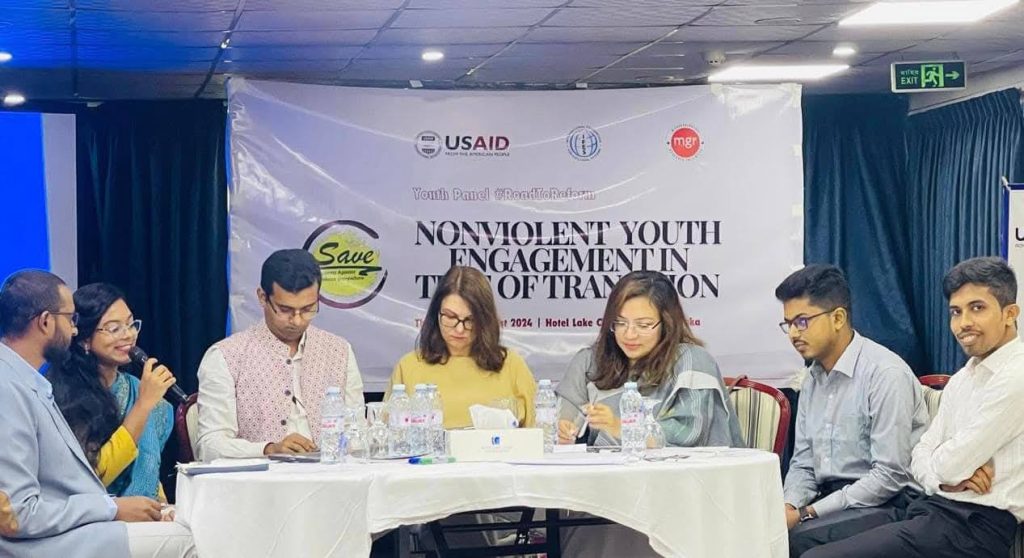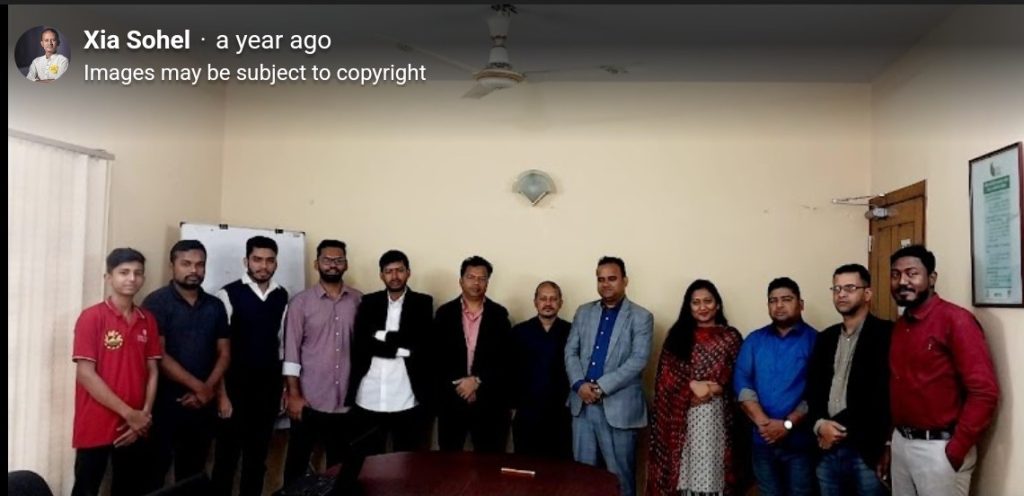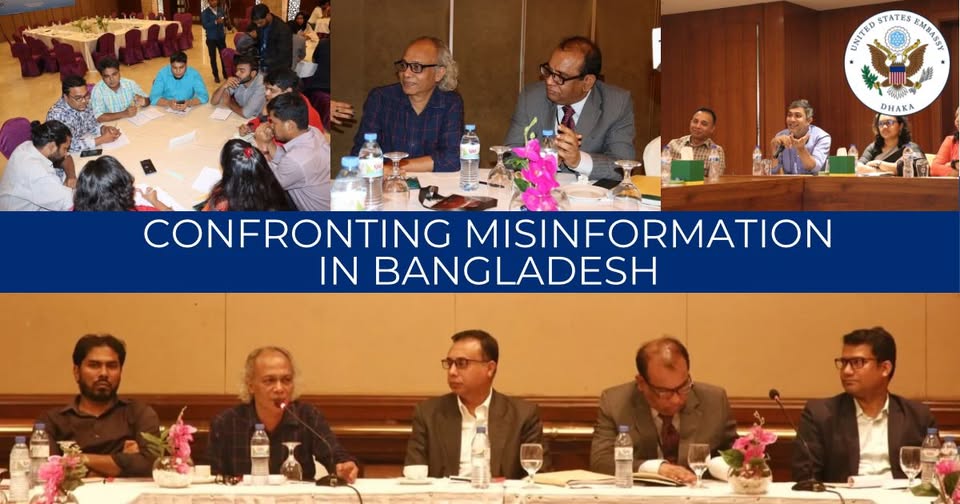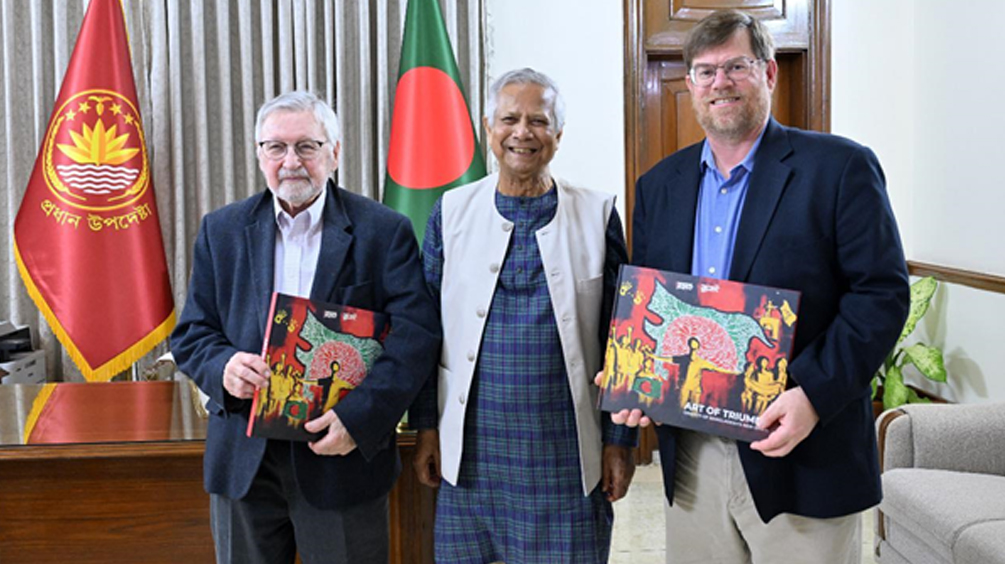The role of NGOs, particularly the US-based International Republican Institute (IRI) and National Democratic Institute (NDI), in Bangladesh ahead of the general election in February 2026 has sparked a renewed debate in the country on external influences and potential violation of its sovereignty.
The NDI and IRI have resumed activities in Bangladesh with the stated aim of capacity building, electoral assistance, and democracy promotion, but critics have alleged interference by these in the upcoming general election.
“The IRI and NDI are not new players in Bangladesh. Their involvement dates back to the 1990s, when they organised training sessions, workshops, and civic programs involving political parties and civil society groups. While their stated mission is to ‘strengthen democratic institutions’, their global record has often been mixed,” said an article published in the Daily Observer last Friday.
“Funded largely by the US Congress through the National Endowment for Democracy (NED) and USAID, these organisations have played controversial roles in countries like Ukraine, Serbia, Venezuela, and Myanmar—often aligning with Washington’s broader strategic and geopolitical interests.”
The article, titled “Influence of foreign NGOs in Bangladesh’s 2026 elections,” said such organisations had come under the scanner earlier. The issue has come to the fore in the backdrop of fresh claims by ousted Prime Minister Sheikh Hasina on the US role in removing her with ground support from Pakistan.
Under the Art and Activism Program, the IRI had funded art and activism workshops, workshops on global examples of pursuing social change with art, and 11 advocacy grants for filmmakers, rappers, theatre groups, and LGBT activists, and more for newspapers and TV channels.
Bangladesh’s former home minister Asaduzzaman Khan Kamal has accused the army chief Waker-Uz-Zaman of staging a “coup” against Hasina in 2024 and acting as an “agent” for the Central Intelligence Agency (CIA).
July Charter’s Poison Pill: How Ali Riaz is ripping Bangladesh apart
Discourse of Ali Riaz: Radical Islamic bias, historical distortion, political subversion
BNP slams ‘deception’ as consensus commission ignites firestorm
“It was a perfect CIA plot hatched over a long period of time to overthrow Hasina. We did not know the CIA had Waker in its pocket,” Kamal was quoted as saying in a book titled “Inshallah Bangladesh: The Story of an Unfinished Revolution.”
Last week, US National Intelligence Director Tulsi Gabbard said that America’s former strategy of “regime change or nation building” has ended under President Donald Trump.

In February of this year, Trump stated that the $29 million USAID fund allocated to Bangladesh for strengthening the political landscape was awarded to a firm that nobody had ever heard of.
“[They] got $29 million. They got a cheque. Can you imagine you have a little firm, you get $10,000 here, $10,000 there. And then we get $29 million from the United States government. They had two people working in that firm,” he said on February 21.
“Two people … I think they are very happy. They are very rich. They will be on the cover of a very good business magazine pretty soon for being great scammers,” Trump said during his speech.
According to the Democracy International website, the Strengthening Political Landscape in Bangladesh program (SPL), funded by USAID and DFID, works to build political party capacity and strengthen relationships between parties and constituents while reducing political violence. It says the project’s duration was from 2017 to 2024.

Trump also mentioned that $21 million went to India for voter turnout. While the US Embassy denied receiving the funds, an investigation by The Indian Express showed that the money went to Bangladesh.
The Trump administration has denied having been involved in ousting the Awami League government last year. But the role of former President Joe Biden, Secretary Anthony Blinken, and US Ambassador Peter D. Haas from 2021 to 2024 clearly showed their uneasiness over Sheikh Hasina’s rule and support for the forces that implemented the CIA blueprint on August 5, 2024.
Scandals of Ali Riaz
Prof. Dr. Ali Riaz, a powerful figure who is in charge of the Constitution Reform Commission and the National Consensus Commission, worked solely for the interest of the United States.
July Conspiracy: Role of global influence in Bangladesh regime change
How the deep state engineered Sheikh Hasina’s ouster in August 2024
Jeffry Sachs: The US professor who exposed deep state’s role in Bangladesh uprising
He is a Distinguished Professor at the Department of Politics and Government of Illinois State University, where he joined in 2002. He held the Thomas E. Eimermann Professorship (2018-2020). Distinguished professor Ali Riaz has been re-elected as the president of the American Institute of Bangladesh Studies (AIBS) for the 2024-2028 term.

Ali Riaz is a member of the Atlantic Council and NATO. The Atlantic Council is a Washington, DC–based think tank that works on US and transatlantic foreign policy. The Atlantic Council is funded by NED and USAID. NED has also funded two of Ali Riaz’s research projects.
Activists say NED is run entirely with US government money—it is a kind of US “soft power,” used to expand political influence abroad in the name of promoting democracy. USAID, on the other hand, is a US government agency that gives aid to groups abroad whose goals are aligned with US foreign policy interests.
So, the question is this: how can a US citizen, who is a member of an organisation funded by the US government, be in a position to control decisions about Bangladesh’s constitution and the structure of its future elected government? In many ways, these projects can be described as a kind of open intelligence operation, carried out in public under the label of academic research.
The NED-funded people and organisations are the ones who are saying “yes” in support of every decision of the interim government. And, interestingly, these individuals also support Jamaat and Shibir.
Ali Riaz has occupied strategic roles in Western academic institutions such as Illinois State University, where he produced work that increasingly blurred the line between academic neutrality and ideological positioning. His syllabi often exclude standard nationalist historiographies or critical literature on Jamaat-e-Islami’s war crimes. Meanwhile, his books are routinely promoted in South Asian Islamist student networks under banners of “Muslim empowerment” and “resistance to Western secularism.”
He also contributes to journals and forums that have a record of Islamist sympathies, including Middle East Policy and Third World. His contributions to Quarterly subtly shift the focus from state-sponsored Islamism to its perceived societal legitimacy. This reframing allows him to appear as a balanced analyst while providing ideological cover to Islamist movements under the guise of political realism.
Ali Riaz’s presence in media outlets such as Al Jazeera, TRT World, and pro-Jamaat Bangladeshi diaspora platforms reveals a calculated use of transnational media to project himself as a defender of democracy—ironically, while allying with forces fundamentally opposed to democratic norms. During the 2018 and 2024 elections in Bangladesh, Ali Riaz consistently amplified opposition narratives and labelled Bangladesh’s legitimate government as undemocratic, even quoting unverifiable sources while ignoring electoral violence committed by Islamist factions.
His commentaries during the 2024 interim regime’s controversial rise were curiously muted on the role of radical groups who backed the so-called “civil society transition.” Instead, Riaz focused on the state’s surveillance mechanisms—an accurate but incomplete picture that omits the radical undercurrents threatening secular democracy.
Aides of Ali Riaz
As of its FY2024 grant listing, the NED has publicly reported funding for two initiatives in Bangladesh. The listing does not identify the specific local organisations receiving the funding.
One of the key means through which foreign interest groups expand their influence in Bangladesh is the so-called civil society, media, and research institutions. The United States funds various organisations in the name of democracy and human rights to protect its geopolitical interests and fulfil its objectives of regime change.

The primary tools for this are the NED, USAID, and other Western grant-based organisations. Through this funding, misleading campaigns are conducted under the guise of free expression, the legitimacy of elected governments is questioned, and long-term social structures are altered to serve American interests.
One part of this process is an online platform called Bangla Outlook, edited by Dr. Saimum Parvez, the BNP chairperson’s special assistant. He is a Fulbright Scholar—a program controlled by the US government and Senior Researcher (Associate Professor equivalent) at the MF School of Theology, Religion and Society at Oslo, Norway.
Saimum Parvez leads the NED-funded Confronting Misinformation in Bangladesh (CMIB), which primarily works to safeguard American interests under the pretext of so-called “disinformation research.”
Activists claim that the NED has created political instability by conducting anti-government campaigns under the guise of “protecting democracy” and disseminating propaganda through news platforms like Bangla Outlook, which promotes specific political agendas in the name of “disinformation research” via institutions like CMIB.
The NED also influences young people through scholarships and exchange programs. Those who receive these scholarships later engage in propaganda in favour of the United States.
CMIB also includes journalist and anchor Zillur Rahman of Tritiyo Matra, who is actively engaged in promoting a specific US-linked agenda.
Zillur also chairs the Centre for Governance Studies (CGS), which is funded by various organisations depending on its location, with key supporters including the NED-funded Centre for International Private Enterprise (CIPE) in Bangladesh. Ali Riaz is a nonresident senior fellow at the CGS.
BNP leader and journalist Mushfiqul Fazal Ansary established the US-based Right to Freedom (R2F). This NGO is now being presided over by former US diplomat Jon Danilowicz and former US ambassador to Bangladesh William B. Milam. Ali Riaz is also a close associate of the R2F leadership. Ansary has been made the ambassador to Mexico.

The NED has previously supported Netra News, an online portal run by Sweden-based Bangladeshi journalist Tasneem Khalil, who was a key influencer of the anti-Awami League movement last year. Following the collapse of the government, the organisation opened its bureau office in Dhaka, ran a campaign against the solitary confinement of various security agencies, and propagated the narratives shared by the released political activists.
An NED report from April 2025 highlights Netra News as a successful long-term investment that is now helping to shape policy and strengthen democratic norms in Bangladesh.